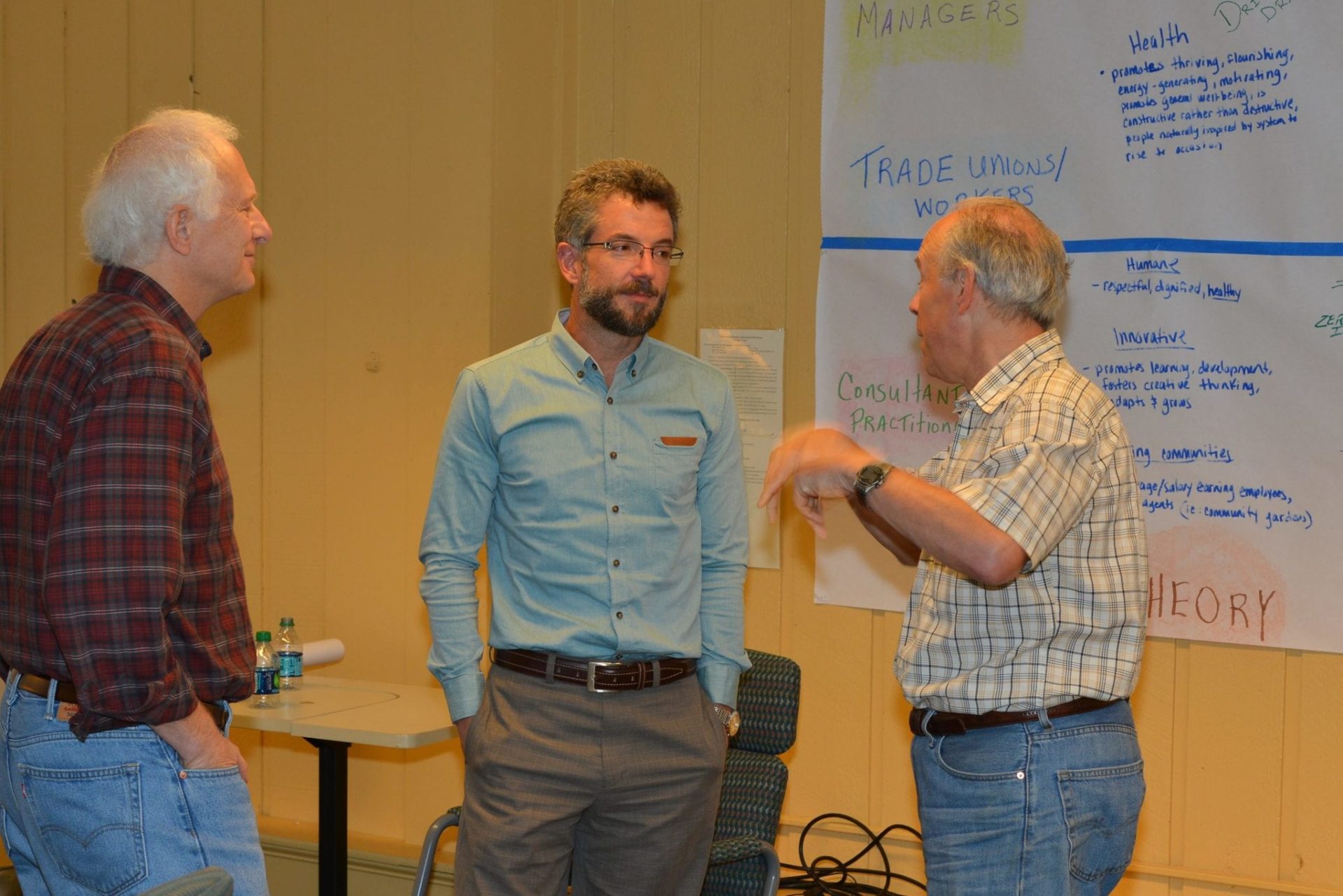We glimpsed a very inspiring future yesterday during the Equitable Food Initiative’s (EFI) presentation. The presenters demonstrated the collaboration power of their emerging ecosystem — major food buyers, growers, farm workers and consumer advocates — in growing safer food and benefiting all stakeholders in the food system including consumers. EFI created both an on-farm mechanism (the Leadership Team) and an incentive (improved standardized working conditions) through which farm workers, collaborating with management, continuously identify and address threats to food safety, sustainability and social accountability.
We discovered the old patterns of relating — from lending bankers to growers to unions to farmers — hold a lot of mistrust and to change these patterns requires new ways of operating that are both structural and behavioral. Every role involved was open to the others’ points of view and willingness to discuss opportunities to connect better. At the farm level, this was enabled by a co-created set of standards for working conditions, pesticide management and food safety.
The gathered community then continued as designers on our “journey to Ithaca” (inspired by Constantine Cavafy’s 1911 poem Ithaca). Enjoyment of the journey and the increasing maturity implied are all a traveler can ask. Our current journey involves moving from a world of problems to solve (which demand speed, analysis and elimination of uncertainty and complexity) to a world of dilemmas (which demand patience, sense-making and an engagement with uncertainty and complexity).
Today’s design work is about dilemmas spanning disciplines and frustrating attempts to craft elegant and final solutions. Modern design dilemmas are unsolvable, complex, often messy, threatening, enigmatic and confusing with multiple, puzzling decision choices. This provides us with many opportunities for innovation, connectivity and creativity but stepping out can also mean individuals and organizations risk ridicule from those with vested interests in the status quo.
To be effective in this environment requires a “North Star” of design principles for healthy, humane and innovative communities of work. As discoverers in this environment, these principles transform the context for people to be the best they can be, and an STS structural intervention combined with a Relational Coordination process intervention aligns behaviors with the new design.
More on our journey tomorrow!





